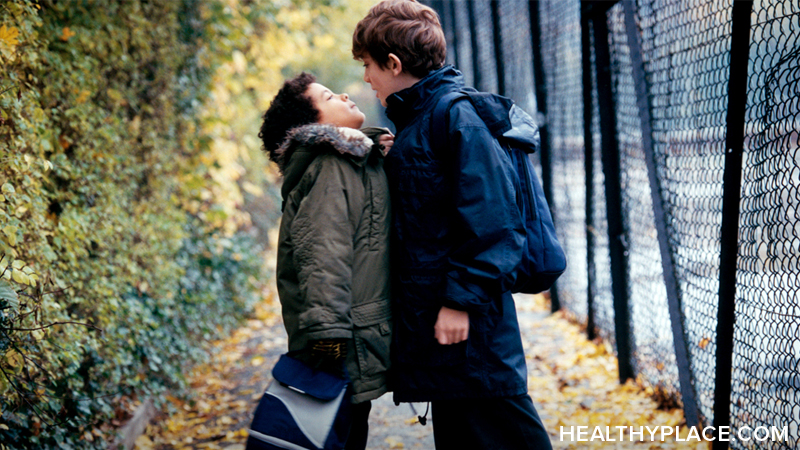What Is a Bully? Who Gets Harmed by Bullying?

What constitutes bullying and why do bullies bully? In the end, bullying behavior harms both the victim and the perpetrator.
What is a Bully?
It is someone who takes advantage of another individual that he or she perceives as more vulnerable. The goal is to gain control over the victim or over the bully's social group. This type of behavior occurs in all ages and in all social groups. Most adults, if they think about it, have experienced bullying too (See: Bullying in the Workplace).
There are different types of bullies. Bullying can involve direct attacks (such as hitting, threatening or intimidating, maliciously teasing and taunting, name-calling, making sexual remarks, and stealing or damaging belongings) or more subtle, indirect attacks (such as spreading rumors or encouraging others to reject or exclude someone).
Who Gets Harmed By Bullying?
Bullying behavior harms both the victim and the perpetrator (See: What If Your Child is a Bully?). If a child experiences chronic intimidation, he or she may learn to expect this from others. He may:
- develop a pattern of compliance with the unfair demands of those he perceives as stronger.
- become anxious or depressed (See: The Impact of Bullying)
- identify with the bully and become a bully himself.
The bully is also harmed. If he or she is allowed to continue the behavior, it becomes habitual. He becomes more likely to surround himself with friends who condone and promote aggressive behavior. He may not develop a mature sense of justice. If he intimidates others to cover up his own insecurities, his own anxiety may increase.
What Behavior Patterns Constitute Bullying?
When a child or adolescent is mean to another, it is important to look for patterns and motivations. Bullies are often different from children who fight indiscriminately. Children who are fighters may simply do so as a result of impulsivity or misreading of social cues. A fighter is often unpopular with his peers. He tends use fighting to settle a dispute and will fight anyone, whether or not adults are watching. He tends not to choose a particular victim.
On the other hand, a bully often:
- surrounds himself with a group of peers.
- consciously picks weaker, more vulnerable victims, and repeatedly bothers the same people.
- tends to do his bullying when authorities are not around.
The bullying is not to settle a clear dispute. Instead, the motive is to gain control over others. He may enjoy watching the victim's reaction.
About the author: Dr. Watkins is Board-Certified in Child, Adolescent & Adult Psychiatry and in private practice in Baltimore, MD.
APA Reference
Gluck, S.
(2021, December 17). What Is a Bully? Who Gets Harmed by Bullying?, HealthyPlace. Retrieved
on 2024, November 20 from https://www.healthyplace.com/abuse/bullies/what-is-bully-who-gets-harmed-by-bullying



